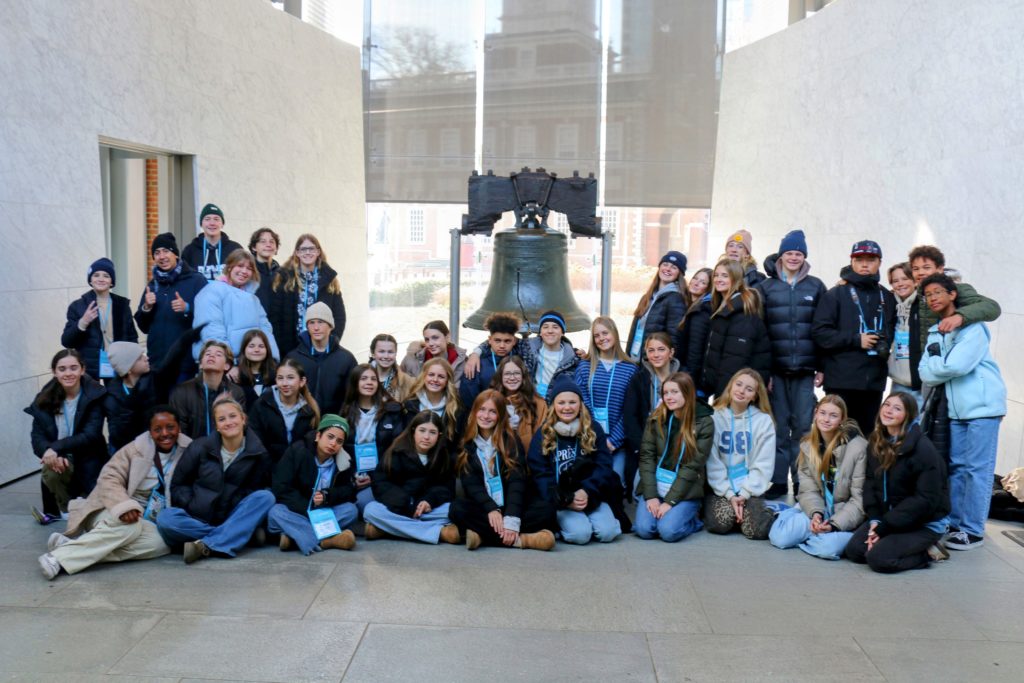What to Do for Students Who Don’t Go on the Class Trip

Teachers organizing a class trip often need to plan ahead for two groups: the students who go on the trip and those who don’t join the group due to behavior, family choice, or other reasons.
Planning ahead for the stay-back group will ensure their time has an educational focus that is aligned with the lessons being learned by their classmates.
Here are steps to help plan ahead for students who stay behind.
Step 1: The Roster
Develop a roster of all students who are staying back from the field trip. Provide the roster to the attendance office, administration, and, of course, the teachers who will be supervising. Also, determine if you need to give a count to the cafeteria for meals or snacks.
Step 2: Communicate with Parents
Inform parents at least two weeks in advance that school will be in session and that their children will be responsible for completing well-planned lessons aligned with the learning standards that will be met by students attending the field trip.
Step 3: Plan a Schedule
How you plan the schedule and lessons will depend on the number of grade-level teachers attending the field trip. The best scenario is to have at least one grade-level teacher stay behind for every 25 kids who stay back. The next best is to hire a substitute to fill that role. Another option is to create a schedule based on specialists and free periods for other staff and administration.
If you are having a student meeting before the field trip, have the students staying back meet with the teacher they will work with or with another staff member instead of attending the field trip meeting. They can go over behavior expectations, lesson plans, and the schedule that is specific to what they will be doing.
At the meeting or a few days in advance, provide the students with a schedule that includes times, teacher names and room numbers so they know where they will go each period. Also, post it outside of the classrooms they usually attend to cover all of the bases. Send an email with the schedule to the staff and administration so they can help direct students as needed.
If their usual day includes “specials,” work with teachers of those classes to develop a lesson that relates. In Art, students could develop a sculpture, painting, or collage. In music, they could watch a musical or learn songs related to the experience.
Considering a class trip to the historic East Coast? Check out these popular NationsClassroom Destinations: Washington, D.C. / Philadelphia / New York City
Step 4: Lesson Plan
During traditional class time, provide a lesson that aligns with the educational standards addressed on the field trip that the students can work on during the duration of the field trip. Plan the length of the lesson and student activities accordingly. A four-day trip to Washington, D.C. requires a lot more planning than an afternoon at the theater.
A few ideas for student outcomes that can be aligned to meet standards include:
- Complete a virtual field trip with questions and activities.
- Create a visitor guide or brochure for the sights visited.
- Write a newspaper about sights visited based on research.
- Plan an exhibit that would fit into the places visited.
- Create a narrated travel video.
We have a Teacher Resource page with a list of free virtual field trips, online resources, and activities for students. You can create your own lessons or search a database of lessons like TeachersPayTeachers where you can find pre-made lessons on almost any topic and field trip destination.
Also, schedule a time to review the lessons and supplies needed with the staff who will be supervising and be sure to reserve any technology that may be needed.
Step 5: Evaluate the Plan
After your field trip, check in with the staff who supervised to see if they have recommendations for improving the experience. Ask the students the same question—they often have the most valuable insights. Take time to assess, provide feedback, and share the work students created so they can feel part of the class experience they missed.
Dealing with Emotions
Sometimes, students who stay back feel left out, and they act out as a result. They may say critical things about the field trip or tell students they are skipping to do something “fun” instead. Remember that their words and actions are most likely coming from a place of insecurity or disappointment, so find time to talk to students who react this way to let them know that they will still have a meaningful experience and that you will miss them.
By planning ahead, you will make sure all of “your kids” have a meaningful learning experience.
For more information about planning a class trip, please browse our tours or contact us.
Originally published April, 2018, updated April, 2024


